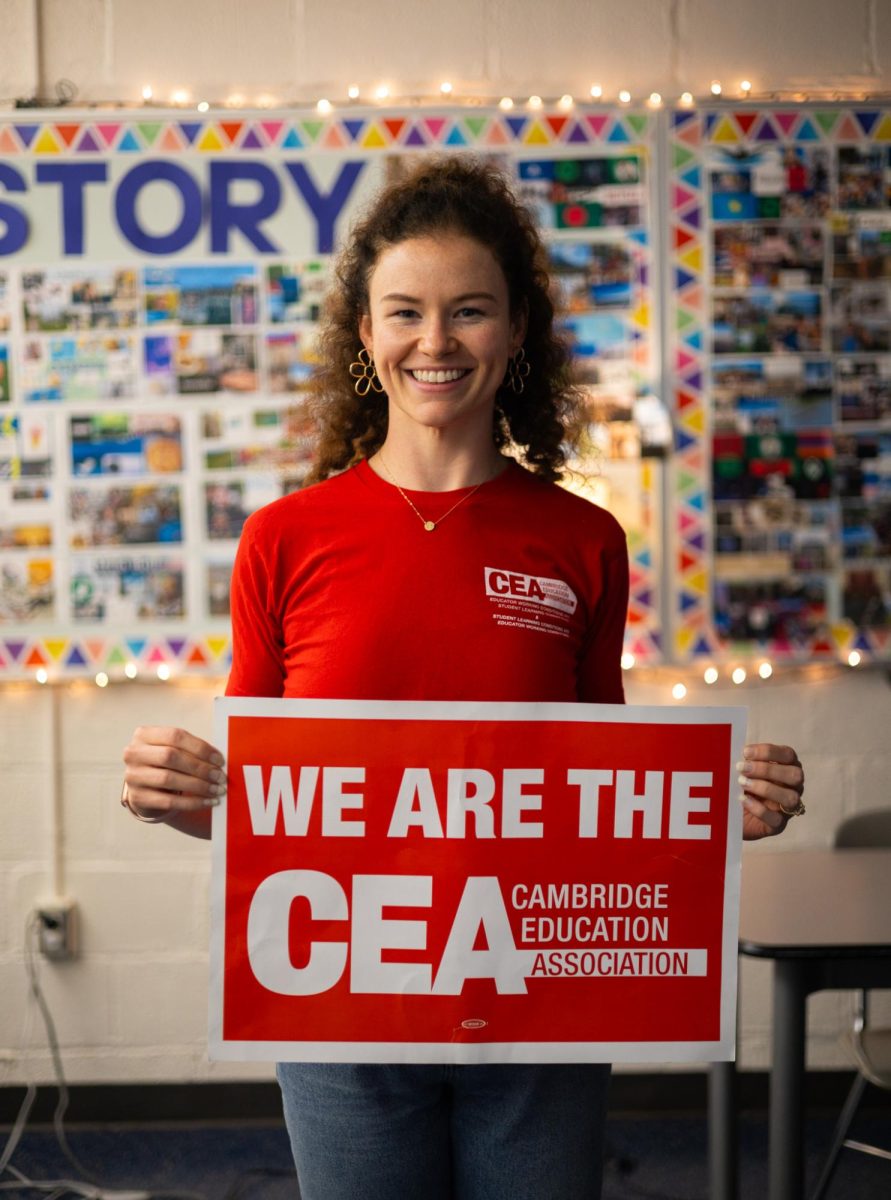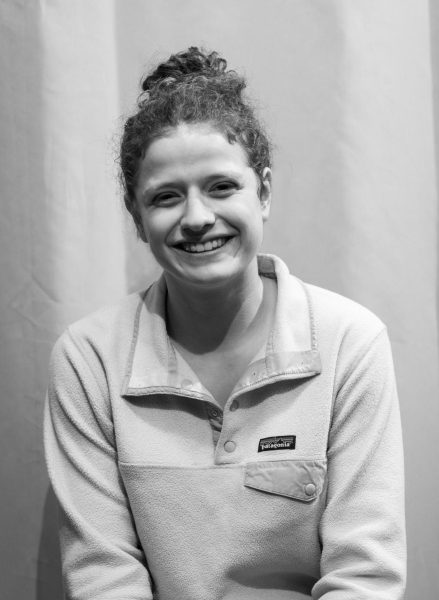The Cambridge Educators Association (CEA) and the Cambridge School Committee have been negotiating teacher contracts for over 83 hours. Despite the extensive time spent at the bargaining table, many Cambridge educators are beginning the school year sans an updated contract.
“I’m very disheartened to see the disrespect that our educators are receiving,” said Andrew King, who is running for School Committee this November.
While many CEA members and School Committee candidates agreed to speak with the Register Forum about the negotiations, current School Committee members and the administration declined to comment. Many cited ground rules, or simply felt that it would be “inappropriate.” Though the ground rules of this negotiation advise members to make all public comments in “good faith,” they do not prohibit engagement with the press.
The School Committee’s bargaining team is composed of Rachel Weinstein and Fred Fantini. Select principals, administrators, and attorney James M. Pender listen in on the negotiations as well. Pender works for Morgan, Brown & Joy, which has a history of being a “union-avoidance” law firm, according to an article published in the Cambridge University Press.
On the other side, a team of 12 CEA members are represented at the table. A field rep from the Massachusetts Teachers Association (MTA) is also present.
Both parties are placed in separate rooms, with a mediator ferrying between the two to deliver each group’s arguments. The CEA and School Committee have no direct contact during negotiations, as is standard legal procedure.
“It’s incredibly inefficient,” said Dan Monahan, president of the CEA. “Sometimes there’s things that are lost in translation.”
However, the mediator does require each side to surrender on some points, which Monahan said “actually seems to be helping things.” Both sides have agreed on 37 proposals according to a statement released by the district, though they have yet to agree on a final contract.
Besides bridging the gap between the parties, mediation also brings the contract one step closer toward a “last best final offer.” The route to compromise is long, but not impossible.
If mediation fails, a state-appointed investigator will evaluate whether there is potential for common ground. If even this doesn’t bring the two parties together, then the School Committee can declare an impasse, and the CEA will be required to accept the Committee’s final draft of the contract.
“[Mediators] have to go back and forth, which we think is a fantastic waste of time,” Montero told the Register Forum. “It gets us one step closer to them declaring impasse.”
The mediator is just one point of contention between the School Committee and CEA. The CEA’s primary grievance has been pay . Teachers in the Cambridge Public Schools earn an average salary of $99,834 per year according to a statement released by CPS. Data from the U.S. Bureau of Labor and Statistics shows that the average salary of a nurse, for example, is lower, at $89,010 annually. Teachers in Cambridge are considered to have relatively high salaries in comparison to other jobs.
The CEA has proposed an 8% cost-of-living adjustment (COLA) three years after the contract is enacted, instead of the School Committee’s proposed 3%. According to the Bureau of Labor Statistics, the overall rate of inflation in the Boston-Cambridge area is around 4.7%.
“Living in this metro area is expensive. It’s not like I want to move,” said Adaline Lining, a member of the CEA’s negotiation team, in an interview with the Register Forum. “I want to stay here.”
While many CEA members agree that the COLA must increase, this has the potential to trigger the reopeners clause in all Cambridge unions. This means that if Cambridge ups its COLA to 8%, all other public unions, including firefighters, custodians, and others, would have to reopen their COLA agreements for negotiation as well. This could lead to Cambridge doling out more funds than the city can afford, which is an issue somewhat beyond the purview of the School Committee.
Even if Cambridge could up the teacher COLAs without affecting other unions, there would still be contention. While the CEA has proposed that Cambridge’s free cash—165 million dollars of surplus money from under-projecting the budget each year—be used to pay teachers, the City of Cambridge has other priorities. Money will be allocated for Universal Pre-K, environmental sustainability, affordable housing, and city maintenance, according to the FY 2024 budget. In fact, 18 million of the 165 million dollars in free cash will be used in 2024, in comparison to spending zero dollars in 2022 and 2023.
“They’re shifting the resources to [other issues] rather than education,” said Robert Travers, a new school committee candidate and a member of the CEA. “Education has dropped down from the top 3 priorities.”
In addition to increasing teacher salaries, the CEA is also pushing for compensation for the Educators of Color Coalition (ECC). According to their website, the ECC strives to create a supportive teaching environment for minority educators.
“The only pay we’ve ever gotten has been from the union, and we think that that’s unacceptable in a district that claims to be anti-racist,” said Montero, a member of the ECC. “[The School Committee is] constantly coming to us to ask us to run workshops or to run professional development for them. We believe that we should be getting paid for that work.”
While the district has done a good job hiring teachers of color, retaining them has been more difficult, Monahan told the Register Forum.
For Montero, this phenomenon hits close to home. “I’m sad to say that one of my best friends here, Emmanuel Oppong-Yeboah has left,” he said, adding that “it’s because we as educators of color don’t feel supported.”
These losses are impactful. A study led by researchers from John Hopkins and American University found that Black students who’d had just one Black teacher by third grade were 13 percent more likely to enroll in college.
It’s not just minority educators who feel undervalued. CEA members said that Cambridge teachers generally feel that their voice isn’t represented in School Committee decisions. King agreed, adding, “I would support reinstating a seat back on the School Committee] table for the CEA president. That would lead to a more robust, truly authentic voice for teachers.”
Though no one on the School Committee is currently teaching in CPSD classrooms, they play a key role in deciding how educators are evaluated. Recently, the Committee has tried to amend teacher contracts to use the original 2018 DESE teacher evaluation rubric, which includes MCAS as a data source, under standard IIC. The rubric was agreed upon last year under the condition that this standard be removed and that MCAS scores would not be used to evaluate educators.
“The MCAS system that we have is in need of some reform. I think there’s a lot of problems that have come with it,” stated Eugenia Schraa, a new school committee candidate. However, she added that “[However.]] I’m not in favor of eliminating it without replacing it with something else keeping teachers accountable.”
The final point of contention is on a School Committee proposal to extend the school day by 30 minutes. The district stated that impacted educators would receive a pay raise of 7.5% for the additional teaching time. Yet, communication on the instruction filling these extra minutes has until recently been minimal.
Travers told the Register Forum, “I’m in favor of them extending the school day—Cambridge has one of the shortest school days —but we need to know what it’s going to be used for.”
If the extension is agreed upon, paraprofessional wages will have to increase as well. “My salary is about what my rent is,” said Marissa Fried, a paraprofessional interviewed in May. “I have to have a second job to live and work here and nobody should have to have a second job at all.”
As current negotiations continue, both sides of the table are conflicted on where and how it will end. After a four-hour meeting on the 6th, where some progress was made, another session is scheduled for the 27th.
“We are ready to fight,” Montero declared. “We are united. We know what it’s gonna take to win. And we’re in it for the long haul.”
Travers added, “I was born and raised in Cambridge, and throughout that time, the school committee and the union have always worked together.” He continued, “In the 28 years I’ve been here this is the worst it’s been.”
Monahan, meanwhile, was hopeful. “We will come to some agreement,” he told the Register Forum. “We’ll meet in the middle.”
In the meantime, hundreds of Cambridge teachers work without a new contract.
An abbreviated version of this article also appears in our September 2023 print edition.
















